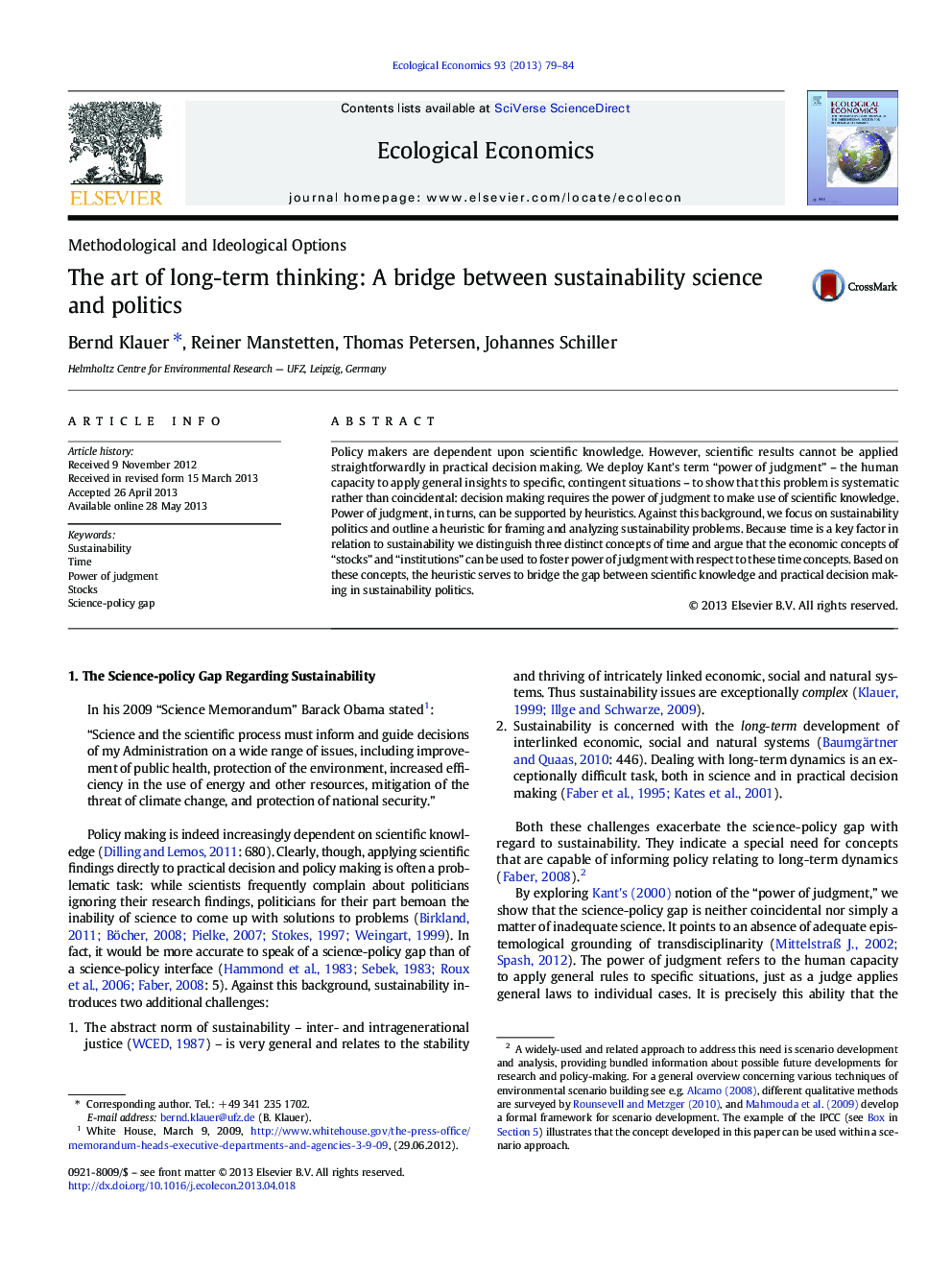| Article ID | Journal | Published Year | Pages | File Type |
|---|---|---|---|---|
| 5049965 | Ecological Economics | 2013 | 6 Pages |
â¢The application of scientific results in practical decision making needs judgment.â¢Power of judgment, in turns, can be supported by heuristics.â¢We outline a general heuristic for framing and analyzing sustainability problems.â¢Dealing with sustainability requires long-term thinking.â¢Our heuristic trains to perceive temporal structures.
Policy makers are dependent upon scientific knowledge. However, scientific results cannot be applied straightforwardly in practical decision making. We deploy Kant's term “power of judgment” - the human capacity to apply general insights to specific, contingent situations - to show that this problem is systematic rather than coincidental: decision making requires the power of judgment to make use of scientific knowledge. Power of judgment, in turns, can be supported by heuristics. Against this background, we focus on sustainability politics and outline a heuristic for framing and analyzing sustainability problems. Because time is a key factor in relation to sustainability we distinguish three distinct concepts of time and argue that the economic concepts of “stocks” and “institutions” can be used to foster power of judgment with respect to these time concepts. Based on these concepts, the heuristic serves to bridge the gap between scientific knowledge and practical decision making in sustainability politics.
